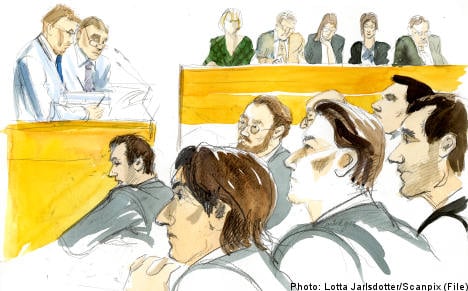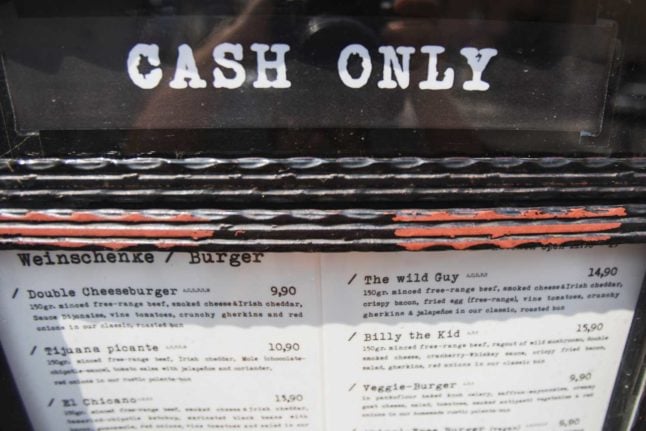Two of the men are charged for blocking roads near the G4S cash depot in Västberga, south of Stockholm.
The third suspect is charged with having planted fake bombs near a police heliport in Myttinge on the island of Värmdö.
Prosecutors had asked that the men each be sentenced to ten years in prison, but the men’s release is an indication that they may be acquitted of the charges.
Defence attorney Lars Engstrand defended one of the men who is suspected of having place chains on the streets around the depot.
During deliberations on Thursday, the court concluded that the reasons keeping the men remanded in custody were no longer existed, Engstrand’s client was released.
“I’d interpret this as meaning that the suspicions have diminished to such an extent that there is a lot of indicate he’s going to be acquitted,” Engstrand told the TT news agency.
His client is charged with aggravated robbery and prosecutors had urged the court to sentence the man to ten years behind bars.
“He’s quite relieved, I just spoke with him,” said Engstrand.
Attorney Björn Lagerling is defending a 24-year-old man who is accused of sabotaging the police response by planting fake bombs near the police’s helicopter hangar.
Lagerling is satisfied with the decision and believes there is much to indicate that his client will be acquitted.
The 24-year-old is charged with aggravated robbery which carries a minimum prison sentence of four years.
If a crime has a minimum sentence of at least two years, a suspected can be remanded to custody if the court believes the evidence is strong.
The fact that the man was released indicates that the suspicions are considered weak.
According to his attorney, the man had not yet heard the news of his release as of late Thursday afternoon.
“The family is really happy; we’re naturally pleased with the news,” said Lagerling.
Attorney Göran Helmer is defending the 31-year-ikd man accused of having to block off a number of roads near the cash depot during the robbery.
Chains laced with crow’s feet were laid out across the street.
Helmer thinks the court was right to release his client and believes the release means his client won’t be convicted.
“I spoke with him as soon as I got the news. He and his family are overjoyed and he’s home with his wife right now,” said Helmer.



 Please whitelist us to continue reading.
Please whitelist us to continue reading.
Member comments